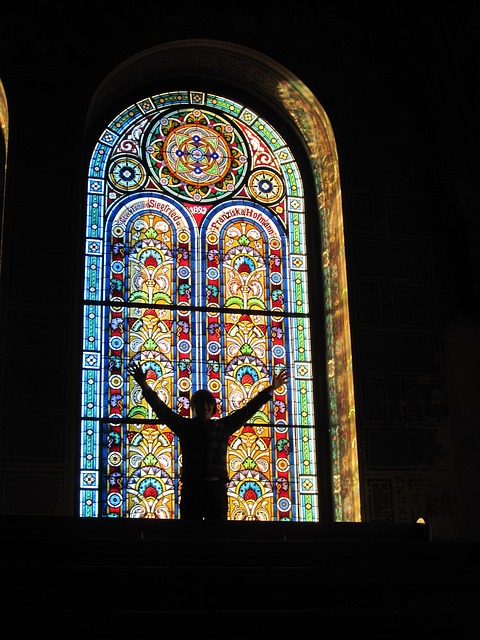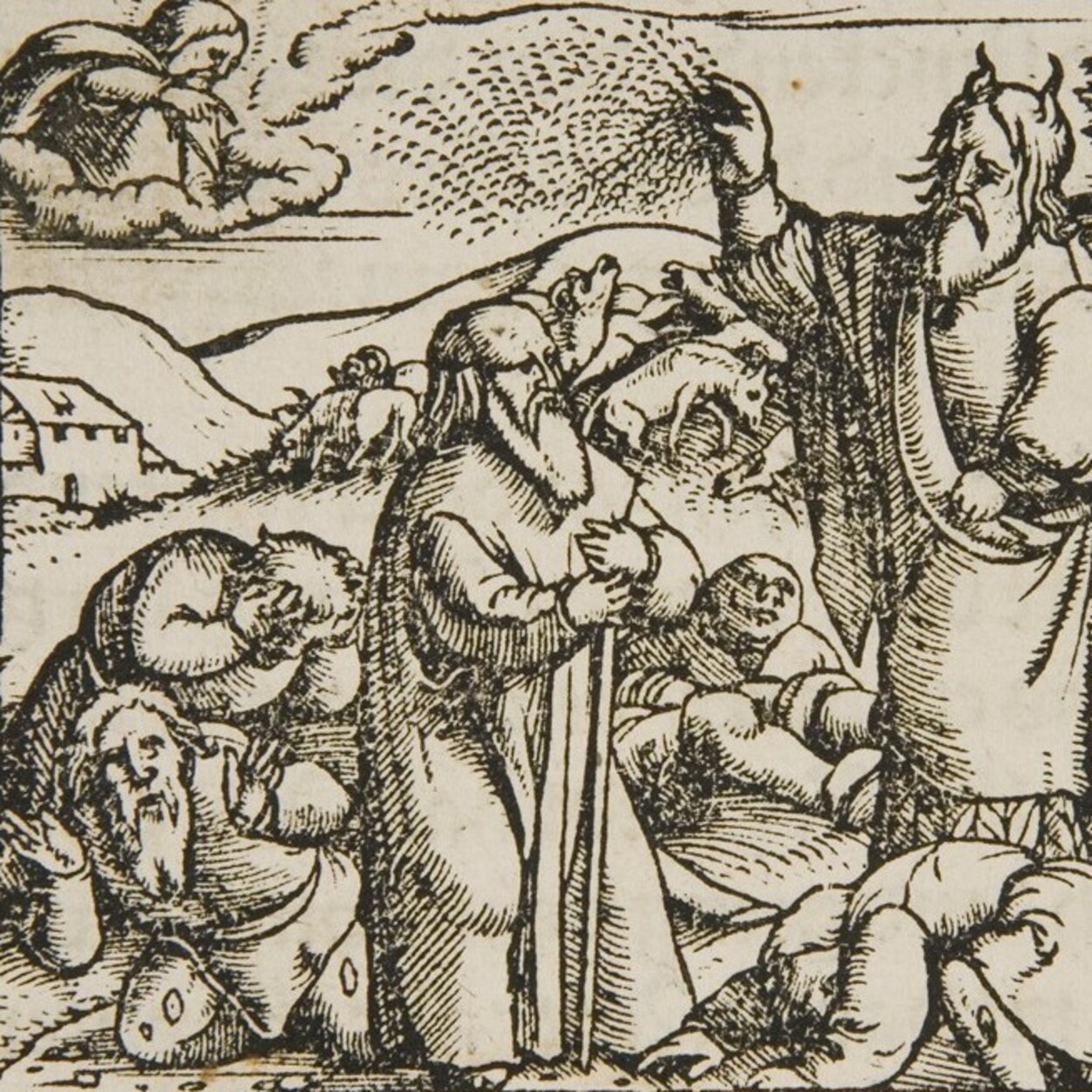On Monday, Public Square Magazine posted Terryl’s piece, A Latter-day Saint Defense of the Unborn. On Friday, Public Square posted Nathaniel’s piece, #NeverTrump; #AlwaysLiberalism. Some have taken Terryl’s piece as an argument to vote for Trump and Nathaniel’s piece as an argument to vote for Biden. Neither interpretation is correct. Instead of attempting to sway voters, the two pieces—especially when taken together—depict the plight all sincere Christians find themselves in: politically homeless exiles. As David French puts it:
More and more, thoughtful (mainly young) Christians say to me, “I’m pro-life, I believe in religious freedom and free speech, I think we should welcome immigrants and refugees, and I desperately want racial reconciliation. Where do I fit in?” The answer is clear. Nowhere.
French cites Tim Keller’s rejection of “package deal ethics”
For example, following both the Bible and the early church, Christians should be committed to racial justice and the poor, but also to the understanding that sex is only for marriage and for nurturing family. One of those views seems liberal and the other looks oppressively conservative. The historical Christian positions on social issues do not fit into contemporary political alignments.
Which in turn reminds us of the lessons of this most recent General Conference in the Church of Jesus Christ. First, all world cultures must be subordinated to the culture of Christ (The Culture of Christ, Elder Jackson). In America, this particularly applies to political cultures, which are the most dominant and divisive cultures today. Second, all political alliances and affiliations other than the culture of Christ must be lightly held, temporary, and disposable. This explains why President Oaks quoted Henry John Temple in his talk, Love Your Enemies: “We have no eternal allies and we have no perpetual enemies. Our interests are eternal and perpetual, and these interests it is our duty to follow.”
As President Oaks explained:
That is a good secular reason for following “eternal and perpetual” interests in political matters. In addition, the doctrine of the Lord’s Church teaches us another eternal interest to guide us: the teachings of our Savior, who inspired the Constitution of the United States and the basic laws of many of our countries. Loyalty to established law instead of temporary “allies” is the best way to love our adversaries and our enemies as we seek unity in diversity.
First and foremost we have to align ourselves with the eternal principles.
Terry’s post was not a voting guide. It was a defense of the “eternal and perpetual” interest to defend innocent human lives. Nathaniel’s post was not a voting guide. It was a defense of the “eternal and perpetual” interest to “seek unity in diversity” through adherence to the “inspired… Constitution of the United States” and the fundamental tenets of liberalism.
But who should we vote for? But what exactly should our policy on abortion be? How precisely can we weigh the competing risks and dangers of left-wing and right-wing assaults on liberalism? These are good questions, but they are also secondary questions. First and foremost we have to align ourselves with the eternal principles. If we do that, it is possible for different perspectives on the difficult, practical questions to be discussed in an atmosphere of mutual respect and cooperation. If we do not do that, nothing will spare us from the spirit of contention sweeping through the nation.
We can think of no clearer picture for the fate that awaits us than the one contained in the Book of Mormon, especially as elucidated by Hugh Nibley in his article, “The Prophetic Book of Mormon.” He describes a “polarizing syndrome [that] is a habit of thought and action that operates at all levels, from family feuds like Lehi’s to the battle of galaxies.”
What else is going on in the United States today, if not a “polarizing syndrome”?
The essential thing to note about this polarity, Nibley instructs us, is that the superficial polarity—the one that seems most obvious—is fake. “Like poles repel each other,” Nibley says, referring to the fact that at the end the Nephites and Lamanites who saw each other as polar opposites were, for all practical purposes, identical. The same motivations, the same hatreds, the same rationalization of escalating atrocities. Nibley saw the same danger in the Cold War, as the United States was tempted away from its idealistic position by the lure of the argument that it must respond to Soviet threats with identical methods in order to prevail.
There is a true polarity, but it is not the one at the surface. Nibley cites Mormon:
A man being a servant of the devil cannot follow Christ; and if he follow Christ he cannot be a servant of the devil. Wherefore, all things which are good cometh of God; and that which is evil cometh of the devil; for the devil is an enemy to God, and fighteth against him continually, and inviteth and enticeth to sin, and to do that which is evil continually. But behold, that which is of God inviteth to do good continually; wherefore every good thing which inviteth and enticeth to do good, and to love God, and to serve him, is inspired of God.
It seems simple enough, but when Nephi prophesies and says “there are save two churches only; the one is the church of the Lamb of God, and the other is the church of the devil” he is referring to the same spiritual reality as Mormon and not the temporal reality that meets our eyes. There are not just two denominations, there are hundreds, just within Christianity, to say nothing of other major faith traditions. Do you think we are meant to sort them into categories? Identify the Good Guys and the Bad Guys by their outward appearances and affiliations? God forbid!
The “two churches” Nephi saw do not correspond to temporal institutions, but to spiritual ones. There are members of the “church of the Lamb of God” in every denomination of Christianity and every major religion and atheism, too. (This in no way obviates the necessity of baptism through the proper authority into the Church of Christ.) And there are also members of “the church of the devil” in every denomination, including within The Church of Jesus Christ of Latter-day Saints.
Sometimes the counsel of General Authorities can seem frustratingly vague or disconnected from the reality that confronts our eyes in social media and the news. That is because they, too, are referring to deeper spiritual truths. They call us—never more clearly than they are calling us now—to forsake the superficial polarities of the world and align ourselves to the spiritual poles.
Should you vote for Trump or Biden in this election? President Nelson did not say, and anyone who pretends that he did is in serious spiritual danger. What President Nelson did teach us was the importance of becoming of the House of Israel by living out the messages, “let God prevail” and “let God be the most important influence in [our] lives.”
We need to be clear on this and fully honest with ourselves in choosing which paradigm we’re operating within. Nibley contrasted “the ancient doctrine of the Two Ways” with the clever imitation “of the Two Parties,” where:
The former specified that there lies before every mortal, at every moment of his life, a choice between the Way of Light and the Way of Darkness; but the latter doctrine taught that righteousness consisted in belonging to one party (ours), and wickedness in belonging to the other (theirs).
We both tried to illuminate two of the fundamental principles on which we should be aligned and were disappointed when so much of the speculation became about which party we were supporting. Which tribe we belonged to. There is only one faction worth joining: it is the faction of Christ and it does not correspond perfectly to any earthly institution. This includes The Church of Jesus Christ of Latter-day Saints in the sense that not everyone who is a member of this Church is automatically a good guy and many who are not within the Church are. This kind of ecumenicism is what Elder Anderson had in mind when he said: “If the world is going to speak less of Him, who is going to speak more of Him? We are! Along with other devoted Christians!” (emphasis added).
Terryl emphasized the essential duty to speak for the defenseless, and surely the Democratic Party’s support of elective abortions even late in abortion is wholly and totally incompatible with this value. But how can we pretend that the Republican Party, with their policy of separating children from their parents—many never to be reunited—as a deliberate cruelty to deter immigration is in some conceivable way aligned with this principle? It is not.
Nathaniel emphasized the essential duty to work for liberalism as the only way to have a truly diverse and tolerant society. We have a President who seems to have little apprehension for or regard for the Constitution and who has energized a base that seeks to overthrow the Constitution’s implementation of liberalism and replace it with an ethnocentric one. Clearly, the current Republican Party is incompatible with liberalism. But how can we pretend that the Democratic Party, with its progressive elites declaring open war on our liberal heritage, is in some conceivable way aligned with this principle? It is not.
If you are a Christian, you are homeless. This has always been true. Now it is obvious.
Those who choose this path will be swept into the vortex of violence, just as so many have been before.
So how should you vote? We don’t know. We care about the outcome, but there is no obviously correct choice and we have no loyalty to any political party. We will do our best—with research and prayerful consideration—to cast our votes. All we can ask is for each of you to do the same. We will lament anyone who votes for Trump or Biden or anyone else as an expression of tribalism and condemn no one who votes for Trump or Biden or anyone else as their best effort to try and find a way to honor the culture of Christ.
This is how it begins to end: more of us will rationalize picking “sides” because we think that we need to band together to seek worldly power to win. That the ends justify the means. That tribalism is right and good or, at worst, a necessary evil. Some of those will join the illiberal left. Others will join the illiberal right. Lamanites and Nephites. A mutually antagonizing, co-dependent death-spiral of rationalization.
Others will recognize that we cannot map the “two churches” onto worldly parties or groups or institutions, and will therefore choose the culture of Christ as our fundamental, primary identity. From that point, we will be able to engage and disengage with the various worldly groups according to the dictates of our consciences and our best judgment to try and effect the greatest good.
If you choose the first—if you invest in “sides”—you will lose before you start. You will believe that those on the wrong side are bad, and in this way, the spirit of contention will worm its way into you, maybe slowly at first or perhaps all at once, and ultimately will be lost to partisanship. Those who choose this path will be swept into the vortex of violence, just as so many have been before.
If you choose the second—if you foreground your primary affiliation as that of the culture of Christ—then you will find that even when you disagree with someone on a temporary political decision there will be no cause for rancor. You will find that tolerance and cooperation with people who share the same fundamental values but have interpreted them differently in a given situation are not your enemies. Those who choose this path will find refuge from the tribal storms, seeking out and finding true companionship in Christ and all who seek to follow His example (which will include anyone of good conscience who seeks for virtue, from any tradition or denomination or persuasion).
We can hardly fulfill our mandate to be a light to the world, modeling the world-transforming power of Christ’s love, if we allow ourselves to be subsumed in the vitriol and factionalism of this disciple-defining moment.
















